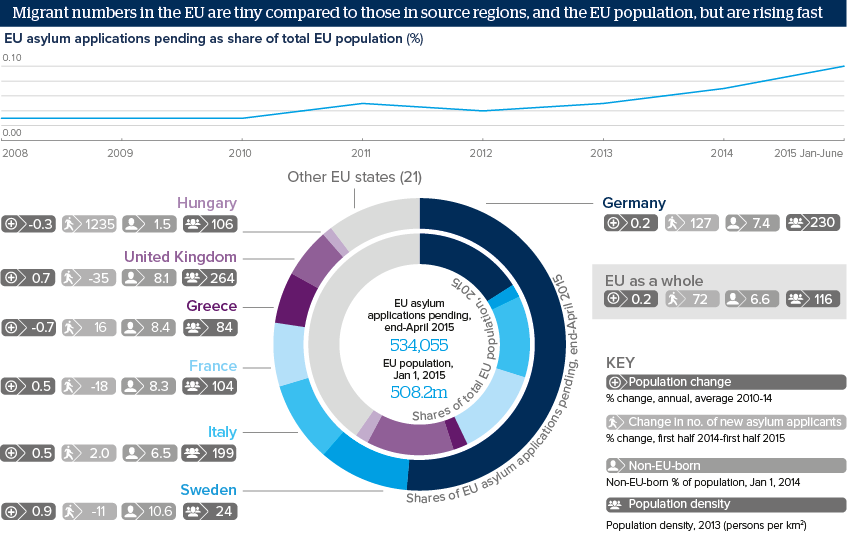Member state differences to hamper EU migrant response
EU states' diversity and unwillingness to cooperate conflicts with the right to free travel

Source: Eurostat
Outlook
German Interior Minister Thomas de Maiziere's August 19 forecast of 800,000 asylum applicants in Germany this year would nearly double the previous (1992) high during the Yugoslav war. Authorities across the EU are struggling to cope with the numbers arriving from the Middle East and parts of Africa, in a wave that could last years.
The autumn is set to see a renewed push, led by Germany, for a more integrated EU asylum policy to increase 'burden-sharing'. However, the issue touches fundamental questions of national welfare states, identities, labour markets, immigration and citizenship policies; EU powers; and migrants' rights. EU states' different demographic, economic, political, historical and cultural positions will continue to obstruct a more united policy.
Impacts
- Clampdowns will divert migrants' routes and raise smugglers' fees; smuggling and 'push' factors make an early drop in numbers unlikely.
- The Schengen unrestricted travel regime could come under pressure. The EU will be less likely to lift visa requirements for non-EU states.
- The issue could mend Germany-France-Italy-European Commission ties, but strain them with Central-Eastern states, affecting EU budget fights.
- Domestically, migrant numbers could strain public finances and centre- regional/local relations, while boosting populist forces.